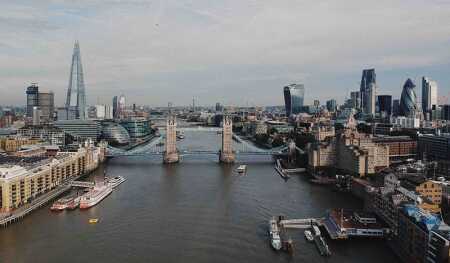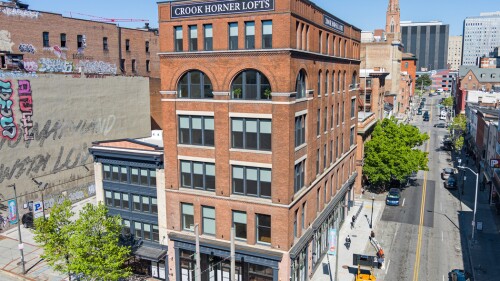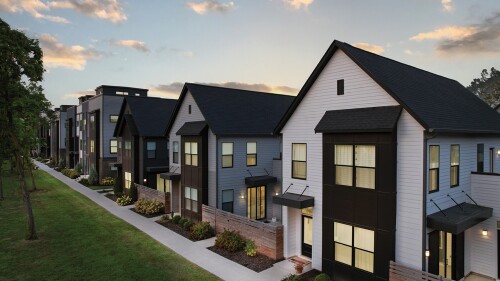Flexibility—from the macro level of economies, education, and governmental impact, to the micro level of managing teams and where to put staircases in buildings—was an overarching theme throughout the ULI U.K. Annual Conference 2017.
From the opening address, the need to provide flexibility and adaptability in infrastructure, buildings, working practices, and management systems in a world that is changing quickly was a leitmotif consistently returned to.
UBS global chief economist Paul Donavan talked about the “seismic changes” that will be brought about by the fourth industrial revolution, the effects of the internet and communications age, which will change the nature of work and increase self-employment and remote working.
“It creates the need to build very flexible infrastructure, because the pace of change is so rapid,” he said. “By its nature, infrastructure is usually inflexible—when you build a road or a bridge, it can only go to one place. So, when people are building infrastructure, or buildings, they need to make sure they are adaptable to the changes in the way we work, which are coming quickly down the line.”
When asked whether the United Kingdom was well placed for a new type of economy that will see reduced stable, long-term employment and greater amounts of self-employment, he argued that the flexibility in the U.K. higher education system meant that it was. “Our universities are very good at turning out people with adaptable skills that can be used in many sectors,” he said. “That actually makes us very different to Asian economies, for example.”
In terms of the built environment, when Madeleine Cosgrave, managing director and regional head of Europe for GIC Real Estate, was asked what was needed to make real estate flexible and adaptable, one point she picked up on was “great architecture and great design.”
And delegates were given an insight into a piece of real estate that very much fits the bill, in the form of the venue for the event, the 5 Broadgate office building, home to UBS and owned by GIC and British Land.
The distinctive building’s architect, Make Architects’ Ken Shuttleworth, outlined how the four huge trading floors in the 1 million-square-foot (93,000 sq m), 12-story “groundscraper” could be covered and broken down into conventional office floors if the bank wanted to reduce the amount of trading floor space, or open out the space on other floors if it wanted more.
To create the amount of space needed for these massive floors while obeying London’s historic rules on protecting views of St. Paul’s Cathedral, much of the building’s plant has been moved to one corner.
Shuttleworth said that the wider Broadgate estate of which the building is a part is a perfect example of building flexibility into a wider development. The estate was erected on a former railway yard during the 1980s, and the first wave of buildings is now coming to the end of its first iteration. Two other buildings occupied by UBS were knocked down to create one larger building, and another building it occupied is being converted to multilet offices.
On a smaller scale, but tying into Donavan’s point on the new flexible economy, Reza Merchant, founder of the Collective, a coliving and coworking company, outlined how the two concepts had arisen and were growing because of people’s desire to have more flexibility and meaning in their lives.
“Whereas previously young people might have left university and gone straight into a corporate job, now people want to do something that they really love, and are willing to take on something that is more entrepreneurial. Coworking spaces cater to that desire.”
He added that coliving is not just a phenomenon that has arisen because of cost. “A lot of people in London have said that they suffer from loneliness, so coliving gives them a sense of connectedness and community. And it’s not just young people—we have a broad range of people living in our scheme at Old Oak Common, including people in their 60s. It’s about a mindset.”
With startup companies able to achieve huge success very quickly in the age of the fourth industrial revolution, a debate is going on in the world of business about how larger legacy companies can mirror the working practices of smaller firms, and again, it comes down to flexibility.
“We need to train the managers,” Cosgrave argued. “We need to teach people to measure outcomes—not just necessarily the inputs of how much people are in the office, but what they actually achieve. It is about changing the mind-set of real estate companies.”
One interesting point of dissension came up. While Donavan argued that improvements in technology and vehicle automation would lead to a reduction in urbanization as people increasingly worked remotely, very few of the panelists agreed with him, with almost all arguing that while people increasingly did not have to come to the office, they largely still wanted to, to be around coworkers and share ideas. For this reason, the clusters of businesses that exist in cities still retain a strong appeal. The flexibility to not come into work is not necessarily one that people want in practice, it would seem.





